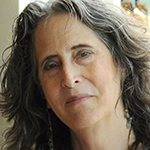Here
“Abortionists emphasized speed and their own protection. They often didn’t use anesthesia because it took too long for women to recover,” from feminist.com and Our Bodies, Ourselves for the New Century
Green beneath winter mulch,
beneath shoes, stable and considerate.
How to describe fear as tracks in fresh snow
or as vicious dogs let loose from a yard—
I did not know what else to do in this time.
A body remembers stiff white sheets,
a long metal rod that tore into the small
red shell of herself her lips repeating
something no one could hear.
Torn paper with sorrow written in bleach.
A young girl as torn paper.
The non-creature ripped out of her.
A girl and a girl? Mercy
a droplet, then swiped into air.
women’s march, 2016
Being
{cemetery & hotel}
When you were raped, you didn’t call it rape,
couldn’t listen to the stones inside you cry
corrosion, you wanted to believe
it was love’s hum. You didn’t know the dead
beneath their inscribed headstones
were seeping into you, like Sapstreak’s
disease, and you a maple that didn’t know
it was dying.
You didn’t listen to yourself
tell yourself what was
and wasn’t or believe your own body,
its gravel of shock, its heart-
mouths widening, suffocating
out of water, you were young.
You couldn’t say it aloud
until you laid like a beached dolphin
on a hotel bed where a non-doctor
hovered over you, until the seed-
shaped being inside rolled out
of you, almost forgiveness.

Amy Small-McKinney’s work has been published in numerous journals, including The Cortland Review, Construction, The Indianapolis Review, Connotation Press, LIPS, Tiferet Journal, MiPOesias, and elsewhere. Her second full-length book of poems, Walking Toward Cranes, won the Kithara Book Prize 2016 (Glass Lyre Press). Small-McKinney’s reviews of poetry books have appeared in a number of journals, including Tiferet and Connotation Press, and Prairie Schooner. Her poems have been translated into Romanian and Korean. Small-McKinney teaches community poetry workshops in Philadelphia and is dedicated to helping others find a way to say the unsayable within the safe container of poetry. She has an MS in Neuropsychology from Drexel University and an MFA in Poetry from Drew University.

 BACK TO ISSUE
BACK TO ISSUE